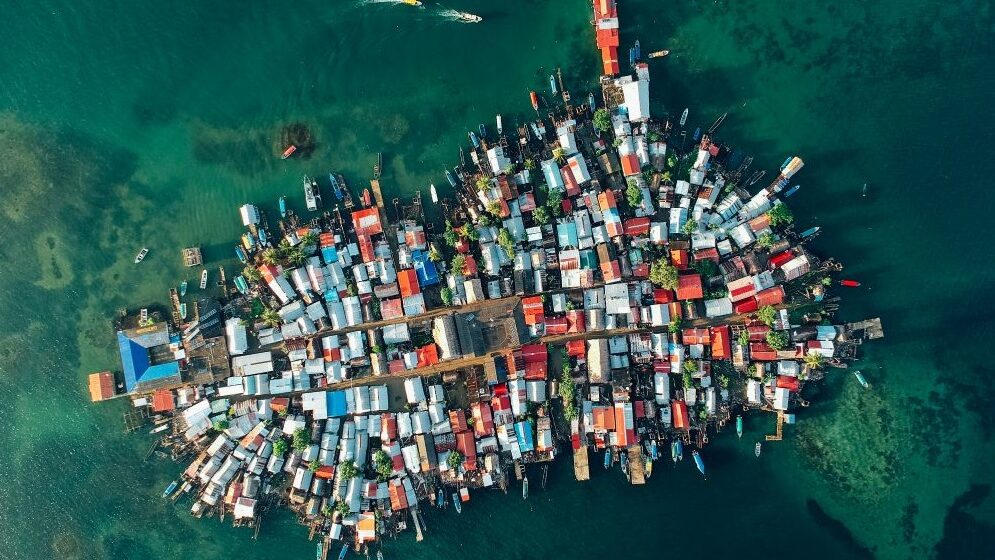Bogotá, Colombia, 20-21 May 2024 – The National Planning Department of Colombia (DNP), with the…
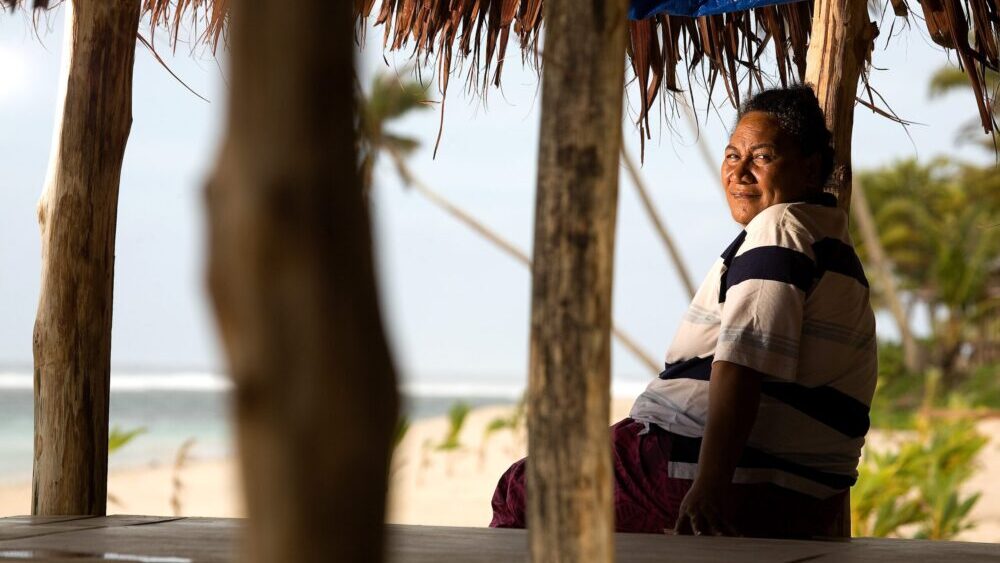
Reporting back from the Human Rights Council – A Human Rights-Based Approach to Planned Relocations in the Context of Disasters and the Adverse Effects of Climate Change
21 June 2024, Geneva, Switzerland – The Platform on Disaster Displacement (PDD) and the Special Rapporteur on the human rights of internally displaced persons, Paula Gaviria Betancur, organized a side event on A Human Rights-Based Approach to Planned Relocations in the Context of Disasters and the Adverse Effects of Climate Change at the 56th Session of the Human Rights Council.
Each year, millions of people are displaced in the context of disasters and climate change, with most remaining within their own country. When movement of at-risk communities is unavoidable, policy options include planned relocation to move people out of harm’s way before or after a disaster strikes.
Planned relocations are defined as processes in which groups of persons move or are assisted to move away from their homes or places of temporary residence, are settled in a new and safer location, and are provided with the conditions for rebuilding their lives within their national borders. These processes must be people-centered, anchored in human rights, and preserve cultural identities and local practices.
This side event brought together representatives from governments, international organizations, civil society organizations and other stakeholders to discuss challenges and opportunities for the protection of human rights throughout planned relocation processes in the context of disasters and climate change. The discussion considered examples and case studies from the Americas and the Pacific region, highlighted effective practices, and shared recommendations from the Special Rapporteur’s report on this topic. The event was moderated by H.E. Christian Guillermet Fernández, Permanent Representative of Costa Rica to the United Nations in Geneva, in Costa Rica’s capacity as Vice-Chair of the PDD.
“Planned relocations in the context of disasters and climate change must be carried out in a human rights-based manner, ensuring dignity, fairness and respect for everyone affected.” – H.E. Christian Guillermet Fernández, Permanent Representative of Costa Rica to the United Nations in Geneva
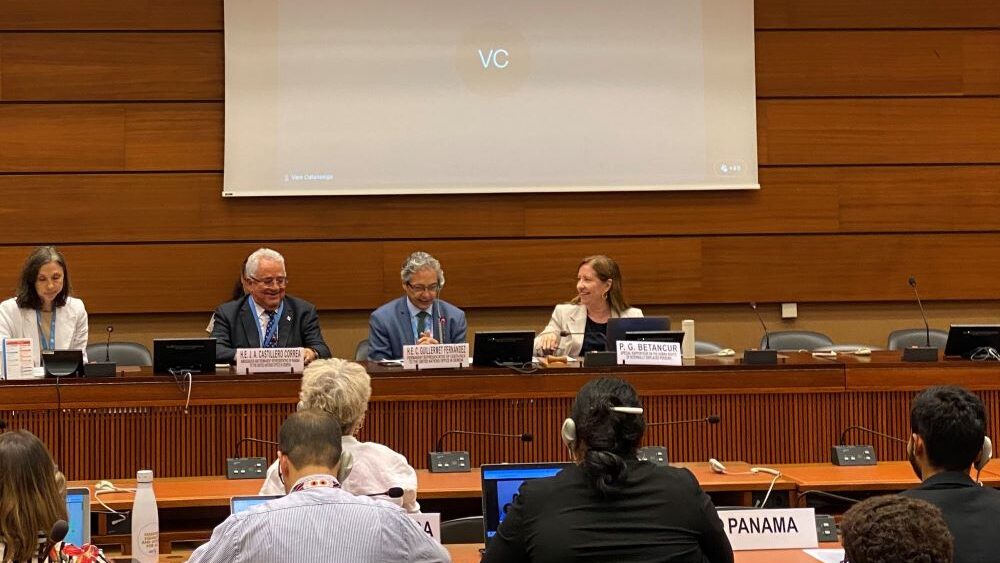
Ms. Paula Gaviria Betancur, Special Rapporteur on the human rights of internally displaced persons, presented key findings from her thematic report on planned relocations in the context of disasters and the adverse effects of climate change. She had presented the report to the Human Rights Council in an Interactive Dialogue earlier that day. The report highlights the importance of legal and policy frameworks and identifies that some countries have adopted dedicated instruments on planned relocation in the context of disasters and climate change, while others have incorporated planned relocation into existing frameworks.
The Special Rapporteur emphasized that “by bolstering these efforts, we can better prepare for and mitigate the adverse impacts of climate change, ensuring that any necessary relocations are conducted in a manner that upholds human rights and human dignity.”
The Special Rapporteur’s report identifies examples of community-led planned relocations in the context of disasters and climate change. One such example is the community-led planned relocation of the Guna Indigenous Peoples from the Gardi Sugdub island community in Panama who, after more than a decade of planning and preparation, began their relocation to the mainland on 3 June 2024. The experiences and perspectives of the Gardi Sugdub community were introduced through a video produced by Human Rights Watch.
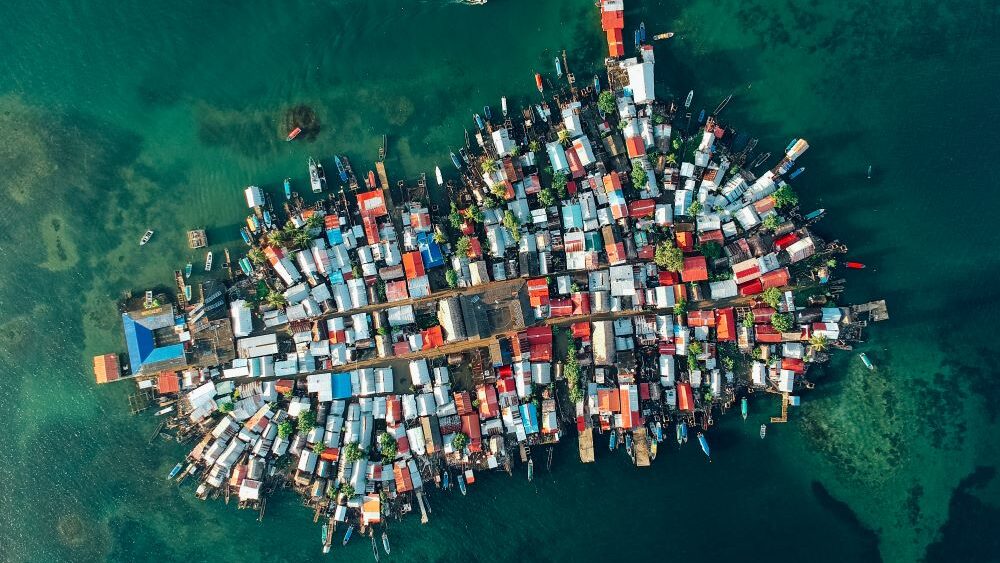
Image: Gardi Sugdub island, Panama 2018
This was complemented by a discussion with H.E. Juan Alberto Castillero Correa, Ambassador and Permanent Representative of Panama to the UN in Geneva. Mr. Castillero Correa shared that the Gardi Sugdub community is one of three communities in Panama who have had to relocate in the context of slow-onset processes such as sea-level rise as well as sudden-onset events including hurricanes. Recognizing the need to adopt a human rights-based approach, and reflecting on the government of Panama’s experiences, he emphasized that “planned relocations are complex and require time and careful planning, taking into account the impact on the daily life of people.”
“We are committed to working closely with communities to understand their needs and aspirations and enable them to relocate in dignity and safety.” – H.E. Juan Alberto Castillero Correa, Ambassador and Permanent Representative of Panama to the UN in Geneva
Another region that has already facilitated the planned relocation of communities in the context of disasters and climate change is the Pacific. PDD Steering Group Member Fiji is one of few countries worldwide with Planned Relocation Guidelines, Standard Operating Procedures, and a Trust Fund in place to support these processes. Building on the Special Rapporteur’s call for a whole-of-society approach to planned relocations, Ms. Vani Catanasiga, Executive Director of the Fiji Council of Social Services, highlighted that civil society organizations play an important role in monitoring these processes and in supporting communities post-planned relocation. In this context, she emphasized the importance of training and capacity building, public participation and peer-to-peer exchanges.
“It is important to make sure that there are parallel cultural and social preservation protocols alongside relocation processes, particularly because the majority of communities that have been relocated so far, and the ones that are listed to be relocated, are indigenous communities.”- Ms. Vani Catanasiga, Executive Director of the Fiji Council of Social Services
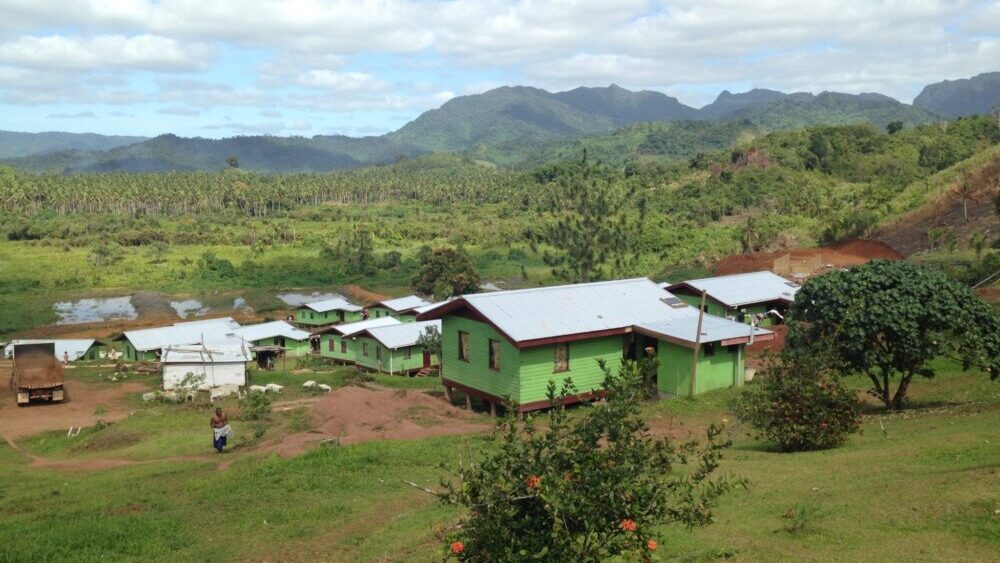
Image: Vunidogoloa Climate Change Relocation Project, Fiji 2014
The event highlighted the growing attention to the topic of planned relocations in the context of disasters and the adverse effects of climate change and underscored the importance of a human rights-based approach to these processes. Ms. Gaviria Betancur emphasized the role that the PDD could play to support peer-to-peer exchanges and learning across regions.
“Planned relocation in the context of disasters and climate change is already happening around the world and this is expected to continue in the future, so why don’t we do it right?” – Ms. Paula Gaviria Betancur, Special Rapporteur on the human rights of internally displaced persons
The side event was co-sponsored by Austria, Bangladesh, Costa Rica, Fiji, Luxembourg, Mexico, Caritas Internationalis, Human Rights Watch (HRW), Internal Displacement Monitoring Centre (IDMC), International Organization for Migration (IOM), Office of the High Commissioner for Human Rights (OHCHR), United Nations High Commissioner for Refugees (UNHCR), United Nations University Institute for Environment and Human Security (UNU-EHS).
Photo credits: (1) Luis Enrique Ascui, Samoa, ADB; (2) PDD; (3) Michael Adams/Flickr; (4) Nansen Initiative
Useful Links and Documents
Read the Special Rapporteur’s thematic report on planned relocations in the context of disasters and climate change
Read about our online conversations with the Special Rapporteur and partners on this topic
Access the submissions to the Special Rapporteur’s thematic report


